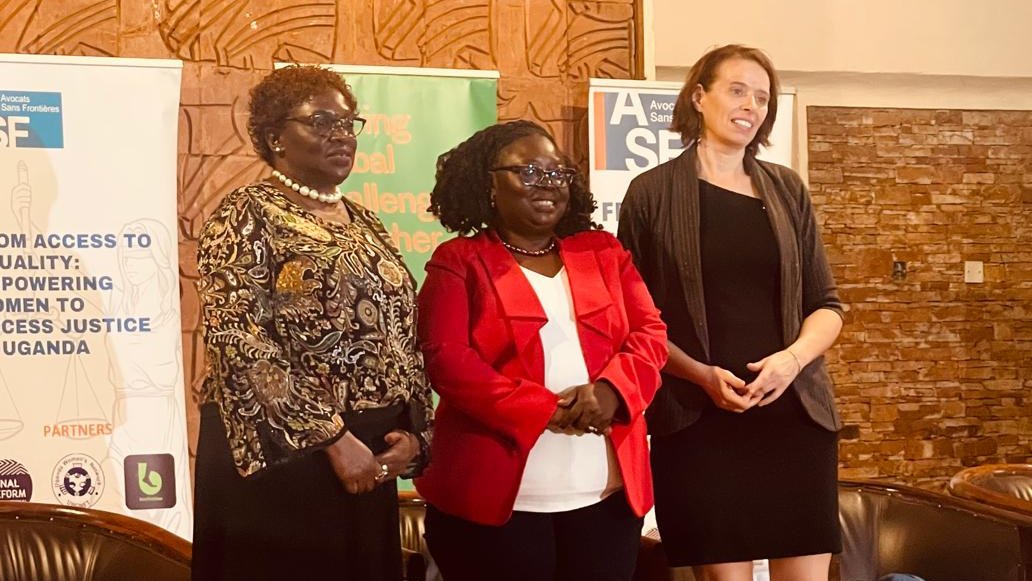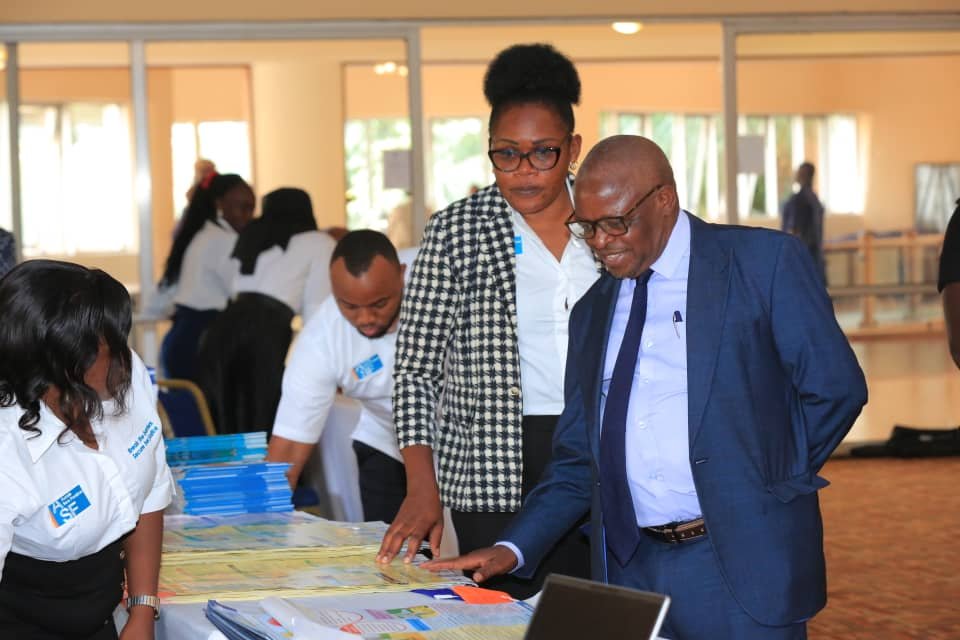Uganda progress on gender parity good, but persistent gaps must be addressed — Dutch embassy official
Smeding, who also heads the embassy’s Development Cooperation and Economic Affairs portfolio, commended Ugandan institutions and civil society partners for their contribution towards empowering women and girls.
According to Smeding, Uganda has achieved gender parity in primary education and currently has 34% of its 11th Parliament represented by women. (Courtesy Photo)
Uganda has been hailed for the strides made in advancing gender equality, but it is cautioned that persistent gaps continue to undermine progress.
The deputy head of mission at the Embassy of the Kingdom of the Netherlands in Uganda, Bouwe-Jan Smeding, made the commendation during the From Access to Equality (FATE) project closing ceremony on Friday, September 19, 2025, at the Golf Course Hotel in Kampala city.
Smeding, who also heads the embassy’s Development Cooperation and Economic Affairs portfolio, commended Ugandan institutions and civil society partners for their contribution towards empowering women and girls.
“I commend the consortium partners: Avocats Sans Frontières, Penal Reform International, Barefoot Law, and the Uganda Women’s Network (UWONET) for their strong collaboration,” he said.
“As the saying goes, if you want to go fast, go alone, but if you want to go far, go together. And you did it.”
The envoy highlighted progress made globally since the 1995 Beijing Conference on Women, noting that Uganda has registered key gains in areas such as education, health, political participation, and legal reforms.
“Yet persistent gaps remain,” he cautioned, adding that the promise of Beijing remains a call to action.
Progress, but gaps remain
According to Smeding, Uganda has achieved gender parity in primary education and currently has 34% of its 11th Parliament represented by women.
He also pointed out that women in various parts of the country are benefiting from initiatives under the FATE project, such as shelters run by the Uganda Women’s Network (UWONET), access to legal aid through Barefoot Law, and rehabilitation and empowerment programmes by Penal Reform International (PRI) and Avocats Sans Frontières (ASF).
“These are not just activities. They are changes that touch lives, build confidence, and create lasting relationships,” Smeding observed.
However, he warned that challenges persist in critical areas such as access to finance, employment, decision-making, and sexual and reproductive health services. Harmful practices such as child marriage, female genital mutilation (FGM), and gender-based violence (GBV) also remain widespread.
“These are reminders that while there has been progress, there is still much to be done,” he said.
Netherlands launches Women Uganda 2025+ initiative
Smeding revealed that the Netherlands, together with seven other female ambassadors in Uganda, recently launched a campaign dubbed Women Uganda 2025+. The initiative is designed to amplify voices from Ugandan society in support of uplifting the position of women.
“In this campaign, we work with male and female influencers in Uganda to speak with one voice and address issues through the channels we have,” he explained.
“Our ambassador is a fighter for gender equality, and I welcome you to engage with us in this mission.”
He further emphasised that the Netherlands would remain a committed partner to Uganda, ensuring that gender considerations are mainstreamed in all development projects, from agriculture to the rule of law.
Civil society calls for the enforcement of laws
UWONET executive director Rita Aciro, which is among the consortium partners, echoed the envoy’s remarks but stressed that despite supportive laws, violence against women and girls remains rampant due to poor enforcement and entrenched negative cultural norms.
“Projects like FATE have reduced violence in targeted areas, but widespread GBV persists, including new forms such as technology-facilitated violence, economic abuse, and psychological violence,” Aciro said.
She called on the Government and partners to view violence against women not merely as a cultural issue but as a development challenge that undermines economic growth, health and human capital development.

Government acknowledges challenges
Gender ministry commissioner for gender and women affairs Angela Nakafeero acknowledged progress made but admitted that significant hurdles remain.
“Women remain poor and often cannot afford costs associated with accessing justice such as investigations, transport, and court processes,” she said.
She pointed to FGM, child marriage, and dowry practices as continuing drivers of inequality.
Nakafeero also raised concerns about the rise in sexual violence, violence in refugee-hosting communities, and abuse of older women, including property grabbing and neglect.
The commissioner revealed that Uganda is currently undertaking consultations to ratify the African Union Convention on Ending Violence Against Women and Girls, adopted at the AU Summit in February 2025.
“The process is ongoing, and we hope the government will approve ratification, as the convention complements Uganda’s existing laws and policies,” she noted.
The FATE project, which began in 2021, has focused on enhancing access to justice, providing GBV shelters, and using technology to extend legal aid to women in Uganda’s Busoga sub-region and beyond. While partners celebrated the gains, all agreed that much more remains to be done.
The national conference dubbed Empowering Women to Access Justice in Uganda from Access to Equality (FATE) was aimed at breaking gender barriers through securing the future of women and girls.
The event was attended by over 40 officials from the Government, development partners and civil society, as well as law enforcement officers from both the Police and Uganda Prisons.
Dr Irene Winnie Anying, the country director of Avocats Sans Frontières (AVS), which organised the national event, said through this project, they have made significant progress and commended the Royal Kingdom of the Netherlands for their financial support, which funded the project with over Euros 4.9 million.
The project impacted various districts in Northern and Eastern Uganda, including Soroti, Gulu, Lamwor, Napak, Mbale, and many parts of the Busoga sub-region.
Brenda Ataro, FATE’s project coordinator, revealed that many women and girls can not afford court fees.
“We trained over 60 community mediators and attached many of them to various courts; as a result, over 1,062 cases were handled by the mediators, with 83% of these cases being resolved,” she stated.
Over 13,000 women’s lives have been improved with knowledge and awareness change, as 95% of these women gained rights knowledge, and 76.6% women were able to practice land rights, while reporting complaints or crime grew by 68.3% since FATE’s intervention.
There was also a significant impact and engagement at the district level, with an overall trust community for mediators high at 82% as 64.9% of these prefer mediation.